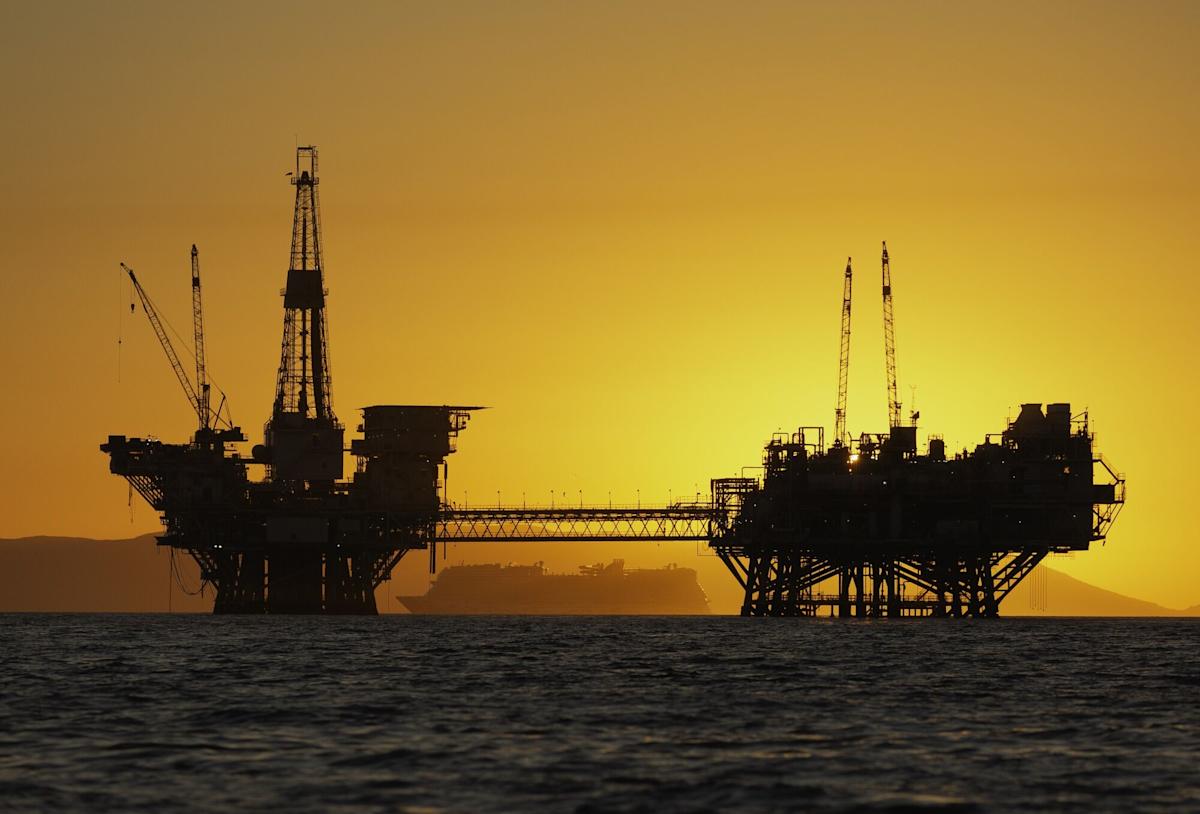(Bloomberg) — Executives from some of the world’s top oil and gas producers offered full-throated support for President Donald Trump’s “Energy Dominance” on Monday, even as financial markets slumped on broader concerns about his economic agenda.
Most Read from Bloomberg
The hallways and sessions on the first day of the annual CERAWeek by S&P Global conference in Houston were filled with buzzy chatter and the vibes of an industry that’s looking forward to an upswing.
Chevron Corp. Chief Executive Officer Mike Wirth told delegates the conversation around climate change and energy production is headed for a “reset.” Shell Plc boss Wael Sawan boasted of a “long runway” ahead for natural gas demand, while Saudi Aramco CEO Amin Nasser said the flaws in the energy transition have been exposed.
But as the executives spoke, New York oil futures dropped to a six-month low, while US equities were hammered amid tariff-driven anxiety. The moves underscore how Trump’s push for US fossil fuel hegemony risks bumping up against the economic repercussions of the trade war set in motion by his administration.
US Energy Secretary Chris Wright defended Trump’s agenda.
“Uncertainty is unsettling and that leads to a loss of confidence — that leads to fear,” he said in an interview with Bloomberg Television’s Alix Steel. “But look, life is long. This administration has been in 50 days.”
“There’s so much positive going on, but yes, you’re seeing the sausage making up close and personal. At the end of the day, we want to lower costs for Americans,” Wright said. “You’ve got to give it a little bit of time.”
The US fossil fuel industry is key to Trump’s promise of a new “golden age” for the world’s biggest economy. His administration represents a rare opportunity for oil and gas companies to lock in permitting for everything from drilling leases to liquefied export terminals.
But the reality is likely to be less than straightforward. Trump’s trade tariffs are set boost prices for steel used in oil and gas pipes. Action on immigration threatens to limit the supply of workers. Crude prices are down roughly 15% since Trump was inaugurated on Jan. 20, which will make it harder for even aggressive producers to lift output as margins get compressed.
Story Continues
